How do you know if a business is truly ethical? Is there a way how to know if a company is sustainable?
It can be difficult to know whether a business aligns with your values. However, by looking for certifications such as LEED, B Corp, Fair Trade, ISO 14001, and Green Seal, you will have more information about how committed a company is to sustainability.
With this knowledge in hand, it’s easier than ever before to make informed decisions when choosing which companies are worthy of your partnership based on their commitment to environmental stewardship. So let’s take a look at what each certification means so that you can better understand how to know if a company is sustainable.
Table of Contents
How to Know If a Company is Sustainable
If you are wondering how to know if a company is sustainable, here are five certifications to look out for.
LEED Certification
What is LEED?
LEED is short for Leadership in Energy and Environmental Design. LEED is a globally recognized green building certification system that helps identify sustainable companies by assessing their environmental performance and energy efficiency. It provides a framework for businesses to reduce their carbon footprint, conserve resources, and create healthier spaces for occupants.
LEED standards are set by the U.S. Green Building Council (USGBC), which is an independent non-profit organization that works to promote sustainability in buildings around the world.
The USGBC also offers additional certifications such as LEED for Homes, Neighborhood Development, Interior Design & Construction, Operations & Maintenance, Healthcare, Schools, and Retail.
Benefits of LEED Certification
LEED-certified buildings have better ventilation systems, efficient plumbing fixtures, increased natural light, improved thermal comfort, energy-efficient lighting systems, effective waste management, and greater employee satisfaction from healthier working environments.
Additionally, businesses can benefit from tax incentives or credits when they become LEED certified since it demonstrates a commitment to sustainability practices which can be attractive to potential investors who value eco-friendly initiatives.
Finally, becoming LEED certified can help organizations gain recognition within their industry as well as improve public perception of their brand image overall.
How to Become LEED Certified
In order to become LEED certified, there are several steps involved.
First, you must register your building project with the USGBC online platform and submit pertinent information about your project.
Next, you will need to develop a plan outlining how you intend to meet all of the requirements of the rating system for your commercial office space or residential development project.
Then submit documentation demonstrating compliance with those requirements such as proof of materials and installation methods.
Finally, once everything has been reviewed, approved, and verified, you will receive official notification that your project has achieved its desired level of certification depending on how many points were earned during the review process.
B Corp Certification
B Lab helps businesses and consumers learn how to know if a company is sustainable.
B Corp certification is a third-party certification program that assesses a company’s social and environmental performance, accountability, and transparency. It helps identify sustainable companies by evaluating their commitment to positive social and environmental impact.
The B Corp Certification was created in 2006 by the nonprofit organization B Lab as an effort to help businesses become more responsible for their impacts on society and the environment. To be certified as a B Corporation, companies must meet rigorous standards of social and environmental performance, legal accountability, and public transparency.
Benefits of B Corp Certification
The benefits of becoming a Certified B Corporation are numerous.
- Access to exclusive networks of like-minded organizations.
- Increased visibility among customers who value sustainability practices.
- Improved employee morale through greater engagement with meaningful work initiatives.
- Recognition from industry peers for leading the way in corporate responsibility efforts.
- Cost savings due to better resource management strategies.
Additionally, certified companies have access to resources such as discounted business services from other Certified B Corporations or discounts on certain products.
How to Become B Corp Certified
Becoming a Certified B Corporation requires passing an assessment conducted by B Lab. This evaluation assesses your company’s policies regarding:
- Governance (including board composition).
- Workers (wages/benefits).
- Community (charitable giving).
- Environment (such as energy use).
- Customers (product safety).
- Suppliers (ethical sourcing).
Companies can apply online at bcorporation.net/apply where they will need to submit documents such as financial statements or customer surveys depending on the type of business. If approved, then you will receive official certification status along with various resources available only for certified members
(Source)
Fair Trade Certification
How to know if a company is sustainable? Fair Trade can help.
Fair Trade certification is an international standard that helps identify sustainable companies by ensuring they meet certain criteria related to labor rights, environmental protection, and economic development in the communities where they operate. It also ensures that employees receive fair wages and are provided with safe working conditions.
The goal of Fair Trade certification is to ensure a better life for workers and farmers who produce goods around the world. This includes providing them with access to education, healthcare, and other basic needs.
Benefits of Fair Trade Certification
The benefits of Fair Trade certification include increased income for farmers and workers in developing countries as well as improved living standards due to better working conditions.
Additionally, it promotes sustainability by encouraging businesses to use natural resources responsibly while protecting local ecosystems from pollution or destruction.
Furthermore, it provides transparency into production processes so consumers can make informed decisions about what products they buy based on ethical considerations rather than just price alone.
How To Become Fair Trade Certified
In order to become certified under the Fair Trade label, companies must adhere to strict guidelines set out by the International Labor Organization (ILO). These include:
- Paying minimum wages that are equal to or higher than those established by national law.
- Offering contracts with secure employment.
- Providing safe working environments.
- Respecting freedom of association.
- Eliminating child labor.
- Ensuring gender equality in hiring practices.
- Preventing discrimination against employees based on race or religion.
- Promoting environmentally friendly practices such as recycling materials used during production processes.
Companies must also provide proof that these standards have been met before being granted approval from the ILO’s independent auditors who regularly inspect facilities throughout the year.
ISO 14001 Environmental Management System (EMS) Certification
What is ISO 14001 EMS?
ISO 14001 EMS is an internationally recognized standard that helps identify sustainable companies by providing them with a framework to manage their environmental responsibilities in an efficient manner. It requires organizations to develop an Environmental Management System (EMS) which outlines how they will reduce their environmental impact through continual improvement of processes and operations.
The EMS includes activities such as setting objectives, measuring performance and taking corrective action when necessary.
Benefits of ISO 14001 EMS Certification
The benefits of obtaining ISO 14001 certification are numerous. For one, it provides assurance to stakeholders that the organization has taken steps to minimize its environmental footprint and be more responsible for its actions.
Additionally, having this certification can help organizations gain a competitive advantage over those who do not have it as customers may prefer businesses with higher standards for sustainability practices.
Furthermore, the implementation of an effective management system can also lead to cost savings from improved resource efficiency and waste reduction efforts.
Lastly, being certified under this standard demonstrates a commitment towards continuous improvement which could further enhance customer satisfaction levels and improve public perception of the company’s brand image.
How To Become ISO 14001 Certified
In order to become certified under this standard, organizations must first assess their current level of compliance with applicable laws and regulations related to environmental protection before developing a plan on how they will meet or exceed these requirements in future operations.
Afterward, they should create policies that outline their commitments towards sustainability initiatives while also detailing specific procedures on how these goals will be achieved over time.
Finally, external auditors will review all documentation to determine if all criteria are met satisfactorily according to established guidelines set forth by ISO standard bodies worldwide.
Green Seal Standardization and Certification Program
Green Seal is an independent, non-profit organization that sets standards for sustainability and certifies products or services that meet those standards. The organization has been around since 1989 and has certified thousands of products from a variety of industries, including food service, hospitality, building materials, janitorial supplies, home furnishings, and office equipment.
Benefits of Green Seal Standardization and Certification Program
The Green Seal certification can help businesses stand out among competitors as it signals to customers that they are committed to making positive changes in the environment.
Additionally, being certified may provide access to incentives such as tax credits or grants offered by government agencies or other organizations dedicated to promoting sustainability initiatives.
How to Become Green Seal Certified
For a product or service to become Green Seal Certified, it must meet all applicable criteria outlined in the organization’s standards documents. These documents cover topics such as energy efficiency, water conservation, waste reduction, air quality, materials safety, product durability, packaging design, and responsible sourcing practices.
Companies interested in pursuing certification should contact a local representative who will guide them through the process — from understanding which standard applies best for their particular industry sector up until obtaining final approval.
Conclusion
When it comes to how to know if a company is sustainable, certifications like LEED, B Corp, Fair Trade, ISO 14001, and Green Seal can be helpful indicators. It’s important to do your research and look for these certifications when trying to identify companies that are committed to sustainability.
We all have a responsibility to ensure the sustainability of our businesses. Knowing if a company is sustainable can be difficult, but there are ways we can assess their practices and policies that will help us make an informed decision. By researching the company’s environmental impact, supply chain transparency, labor standards, diversity initiatives, and social justice commitments, we can get an idea as to how committed they are to being socially responsible.
Taking action by investing in companies with sound corporate values and encouraging those without them to improve upon their current practices is essential for creating lasting change within the business world today.
{“@context”:”https:\/\/schema.org”,”@type”:”FAQPage”,”mainEntity”:[{“@type”:”Question”,”name”:”What is LEED?”,”acceptedAnswer”:{“@type”:”Answer”,”text”:”
LEED is short for Leadership in Energy and Environmental Design. LEED is a globally recognized green building certification system that helps identify sustainable companies by assessing their environmental performance and energy efficiency. It provides a framework for businesses to reduce their carbon footprint, conserve resources, and create healthier spaces for occupants.
LEED standards are set by the U.S. Green Building Council (USGBC), which is an independent non-profit organization that works to promote sustainability in buildings around the world.
The USGBC also offers additional certifications such as LEED for Homes, Neighborhood Development, Interior Design & Construction, Operations & Maintenance, Healthcare, Schools, and Retail. “}},{“@type”:”Question”,”name”:”What is ISO 14001 EMS?”,”acceptedAnswer”:{“@type”:”Answer”,”text”:”
ISO 14001 EMS is an internationally recognized standard that helps identify sustainable companies by providing them with a framework to manage their environmental responsibilities in an efficient manner. It requires organizations to develop an Environmental Management System (EMS) which outlines how they will reduce their environmental impact through continual improvement of processes and operations.
The EMS includes activities such as setting objectives, measuring performance and taking corrective action when necessary. “}}]}





